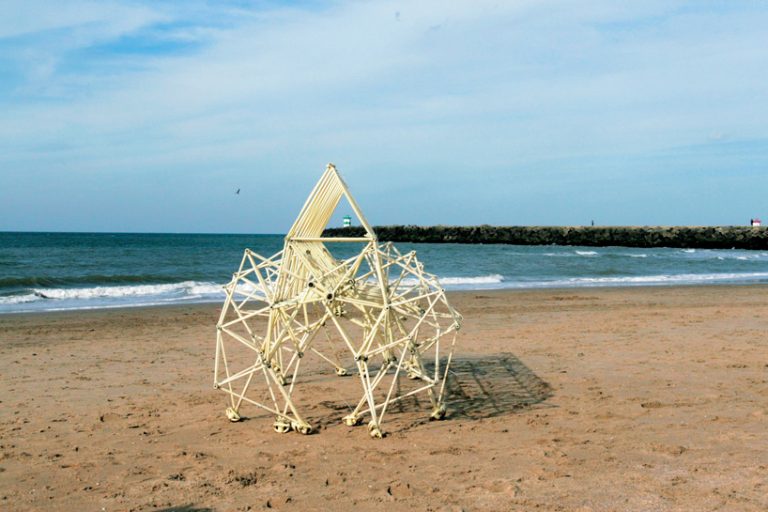
build one of theo jansen's worldrenowned strandbeests for yourself with this mini DIY kit
Dutch inventor and artist Theo Jansen is bringing his Strandbeests to Miami. How did the creatures evolve to walk by themselves? He describes them as 'skeletons that walk on the wind, so they.
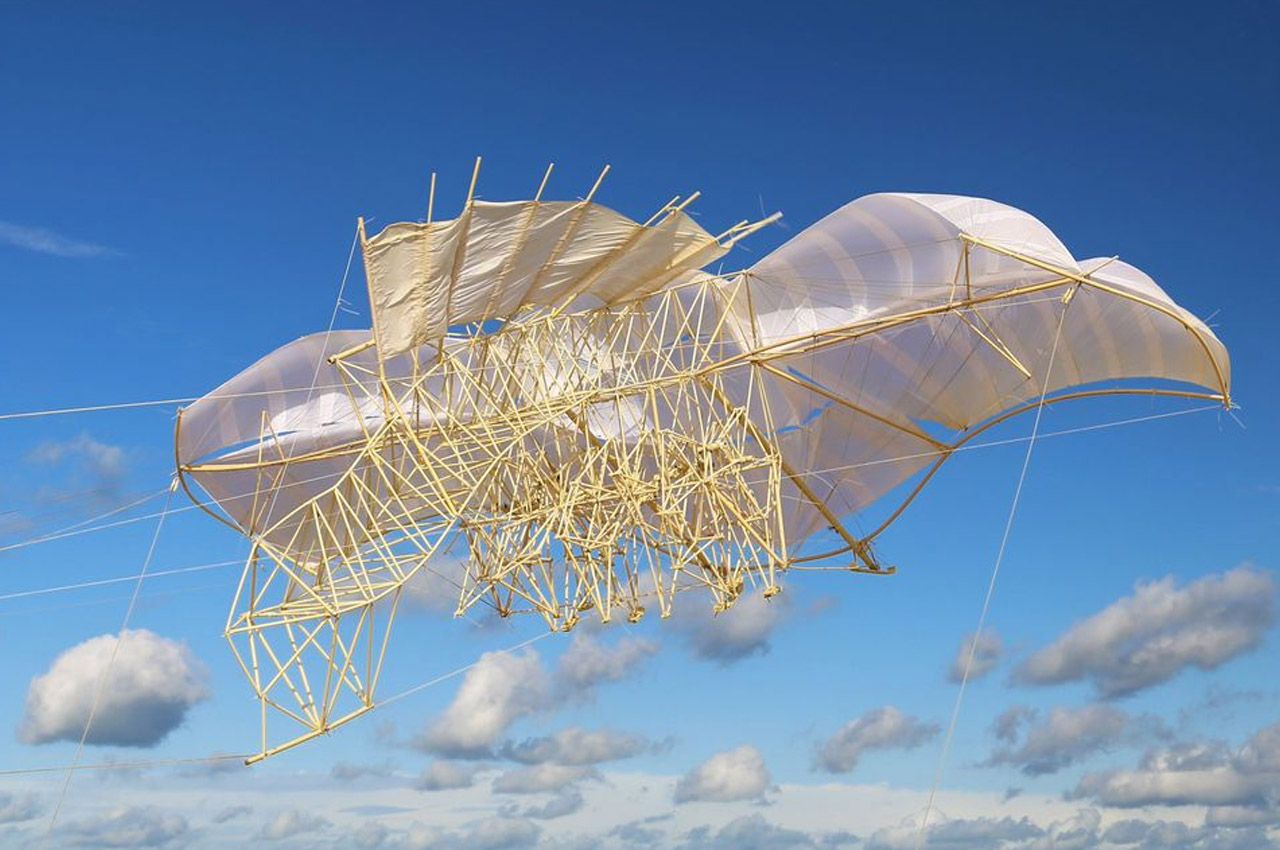
The famous Strandbeests get wings to finally evolve into flying machines Yanko Design
Theo Jansen, a Dutch contemporary artist, a sculptor, an engineer, and most significantly, a visionary. The universe in his mind along with his manual capability came together to create rare and breathtaking kinetic sculptures roaming around the Netherlands' beaches. Welcome to the Strandbeest jungle of Theo Jansen.

Theo Jansen on his passion for developing strandbeests into ever evolving creatures
Theo Jansen's Strandbeests - Wallace & Gromit's World of Invention Episode 1 Preview - BBC One BBC 13.9M subscribers Subscribe Subscribed 4.5M views 13 years ago #bbc

Building A ‘Beest’ Fit For The Beach
Theo Jansen is engaged in creating new forms of life: the so called strandbeests. Skeletons made from yellow plastic tube (Dutch electricity pipe) are able to walk and get their energy from the wind. They have evolved since their inception in 1990 and have been divided into 12 periods of evolution. Their properties determine this period.

Theo Jansen strandbeest. Strandbeest, Theo jansen, Dutch artists
The sculptural animals are known as Strandbeests and are part of a growing menagerie by artist Theo Jansen ( previously ), who's been constructing large-scale, kinetic beings powered entirely by the wind since 1990.
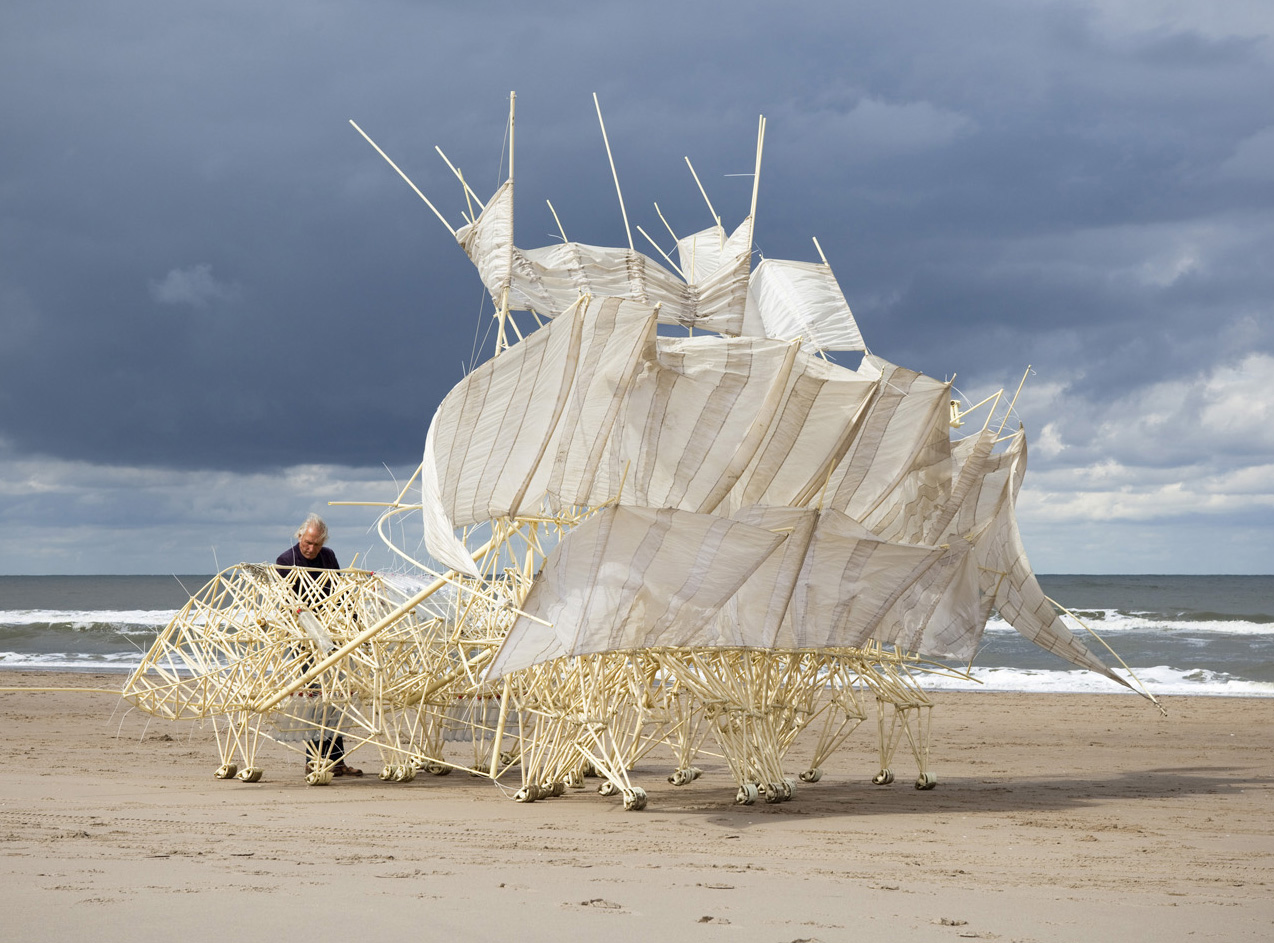
'Theo Jansen Strandbeest' The Japan Times
theo jansen 129K subscribers Subscribe Subscribed 13M views 6 years ago www.strandbeest.com Numerous specimen of the Strandbeest evolution on music of Khachaturian's Spartacus. It open the.
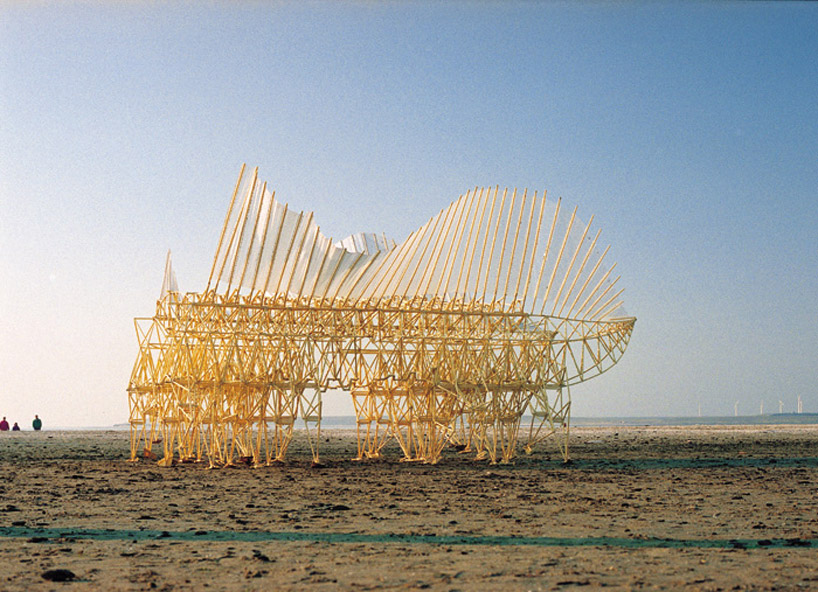
Theo Jansen's Whimsical Strandbeests Come To America Kids News Article
A Strandbeest in action. Jansen's linkage is a planar leg mechanism designed by the kinetic sculptor Theo Jansen to generate a smooth walking motion. [1] Jansen has used his mechanism in a variety of kinetic sculptures which are known as Strandbeesten ( Dutch for "beach beasts"). Jansen's linkage bears artistic as well as mechanical merit for.

Theo Jansen’s ‘Strandbeests’ stop at Exploratorium
Each Strandbeest bears a Latin name that indicates its main characteristic and the period it belongs to. Theo's creatures are designed to live on beaches. They feed on the power of the wind and do not rely on engines or advanced technology to move. One of Theo Jansen's creatures National Museum of Science and Technology Leonardo Da Vinci.

Theo Jansen’s ‘Strandbeests’ stop at Exploratorium
Dutch sculptor, Theo Jansen, has spent the last 28 years designing and building a series of wind-powered creatures called Strandbeests or 'beach animals'. Jansen's extraordinary creations, which he describes as "a new form of life", are a true embodiment of art, science, engineering and performance. In the spirit of Leonardo da Vinci.

Strandbeest van Theo Jansen
Last week's walkabout, the first of four in advance of a big exhibition of Jansen's work at the Peabody Essex Museum, was the first public Strandbeest appearance in the Northeast. Cars began.

Theo Jansen's Whimsical Strandbeests Come To America Kids News Article
In the first major American exhibition tour, Theo Jansen 's wholly distinctive kinetic creations blur the lines of art, engineering, science and performance. The exhibition celebrates the thrill of the Strandbeests' locomotion and shows the processes that have driven their evolutionary development.
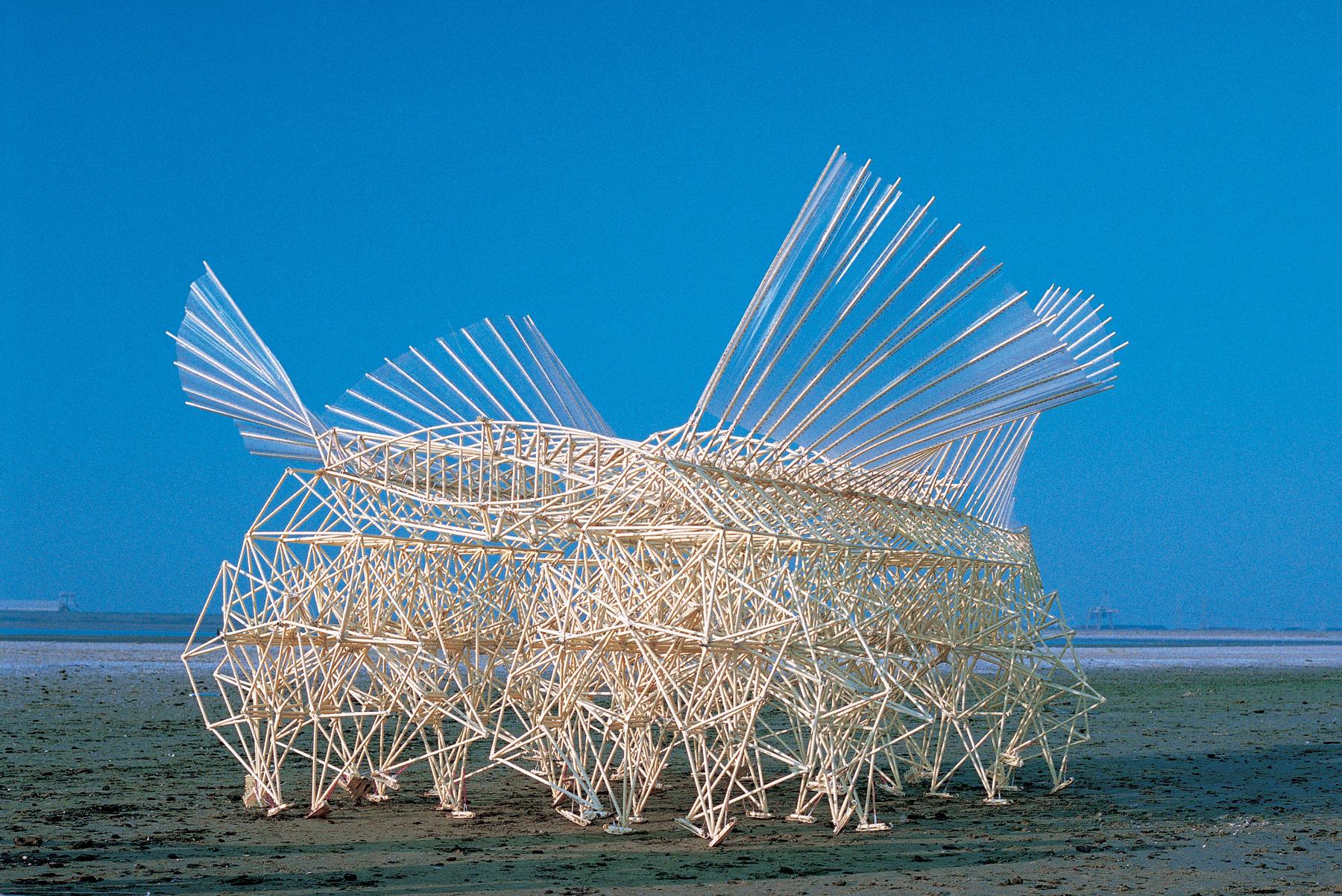
‘Strandbeest’ Sculptures of Theo Jansen Fuse Art With Engineering Chicago Tonight WTTW
innovation Theo Jansen's Strandbeest. Theo Jansen/Strandbeest Inspired by evolution and powered by the wind, Theo Jansen's amazing "Strandbeests" are some of the most awe-inspiring.

75. Theo Jansen & de Strandbeesten Roeselien Raimond Nature Photography
Theo Jansen. For more than twenty years Theo Jansen has wholeheartedly devoted himself to create a new form of life.His "Strandbeest" (beach beasts) seem so organic that from a distance they could be mistaken for huge insects or prehistoric mammoth skeletons, but they are made of materials from the industrial age: flexible plastic tubes, adhesive tape.
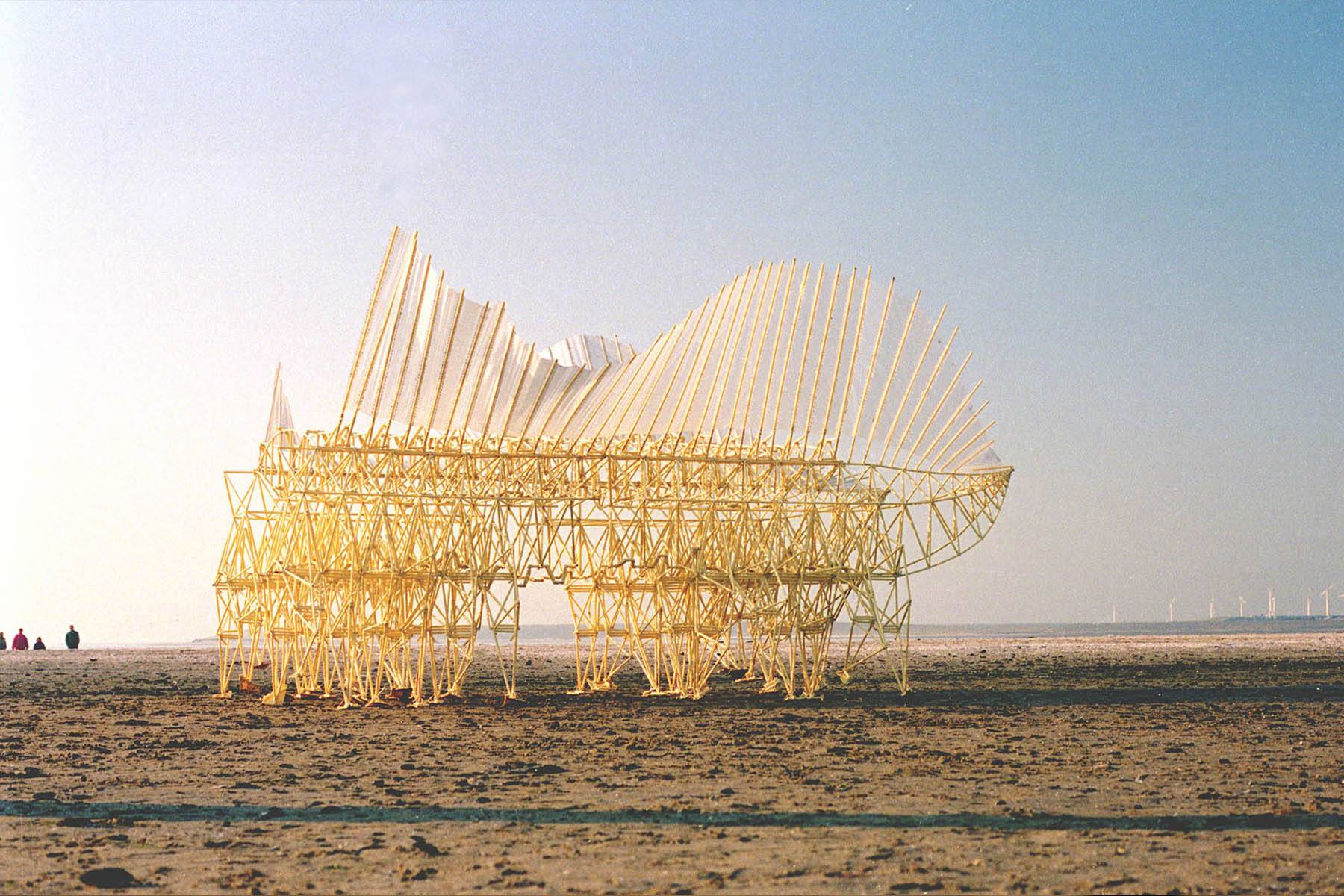
Walking Strandbeests By Theo Jansen IGNANT
Theodorus Gerardus Jozef Jansen ( Dutch pronunciation: [ˈteːjoː ˈjɑnsə (n)]; born 14 March 1948) is a Dutch artist. In 1990, he began building large mechanisms out of PVC that are able to move on their own and, collectively, are titled Strandbeest. The kinetic sculptures appear to walk.
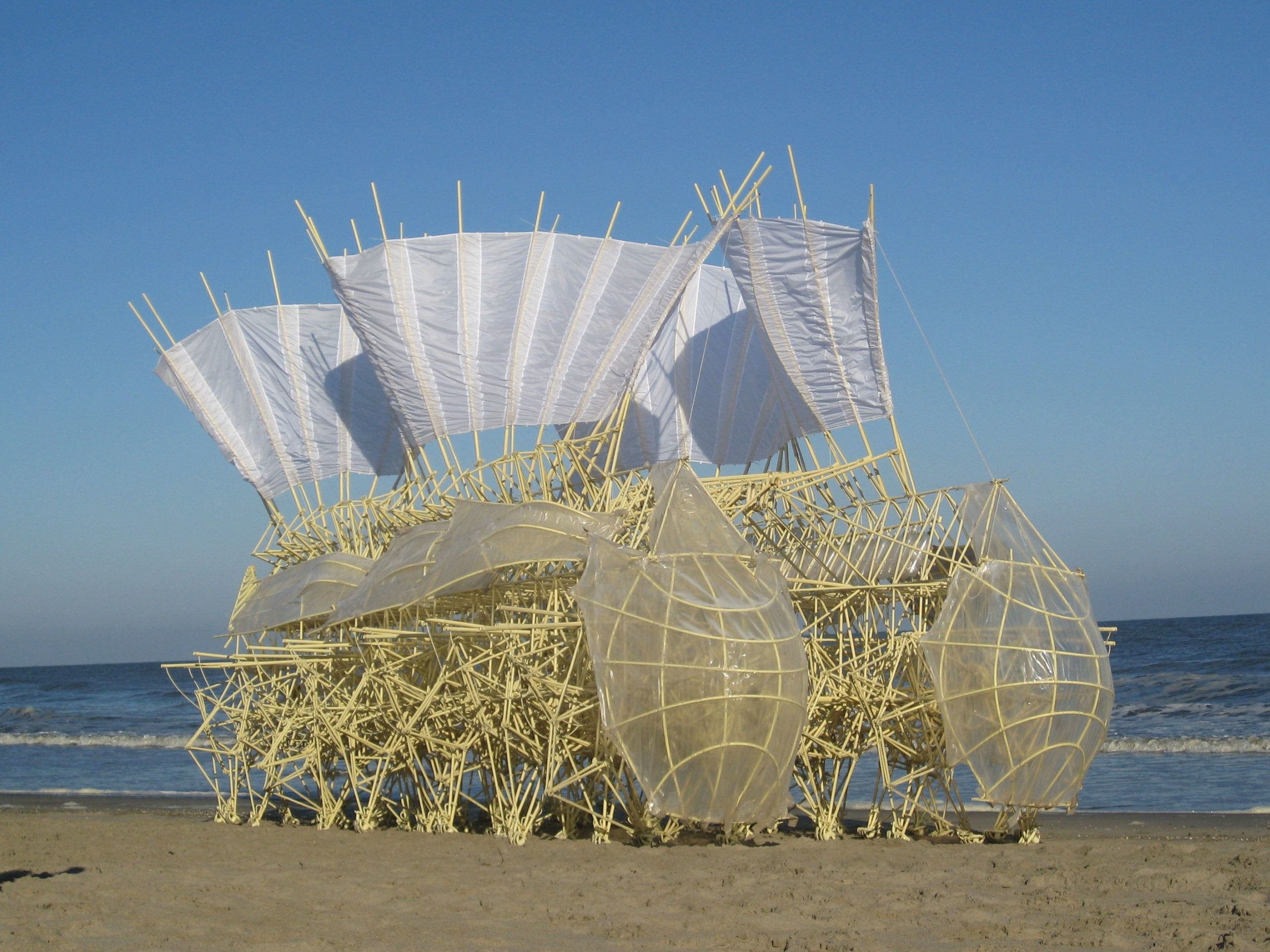
La Evolución de las Strandbeest de Theo Jansen La Cueva del Lobo
0:00 / 2:13 Theo Jansen's Wind-Powered Sculptures | The New Yorker The New Yorker 842K subscribers 1M views 12 years ago Theo Jansen's Strandbeests, wind-powered sculptures that walk on.

Theo Jansen's Strandbeest «I have to build them, I have no choice»
Art In collaboration with the Peabody Essex Museum (PEM), Audemars Piguet presented six kinetic, wind-powered creatures titled Strandbeests, which also means "beach beasts" in Dutch, by artist Theo Jansen, during Art Basel in Miami Beach in 2014.